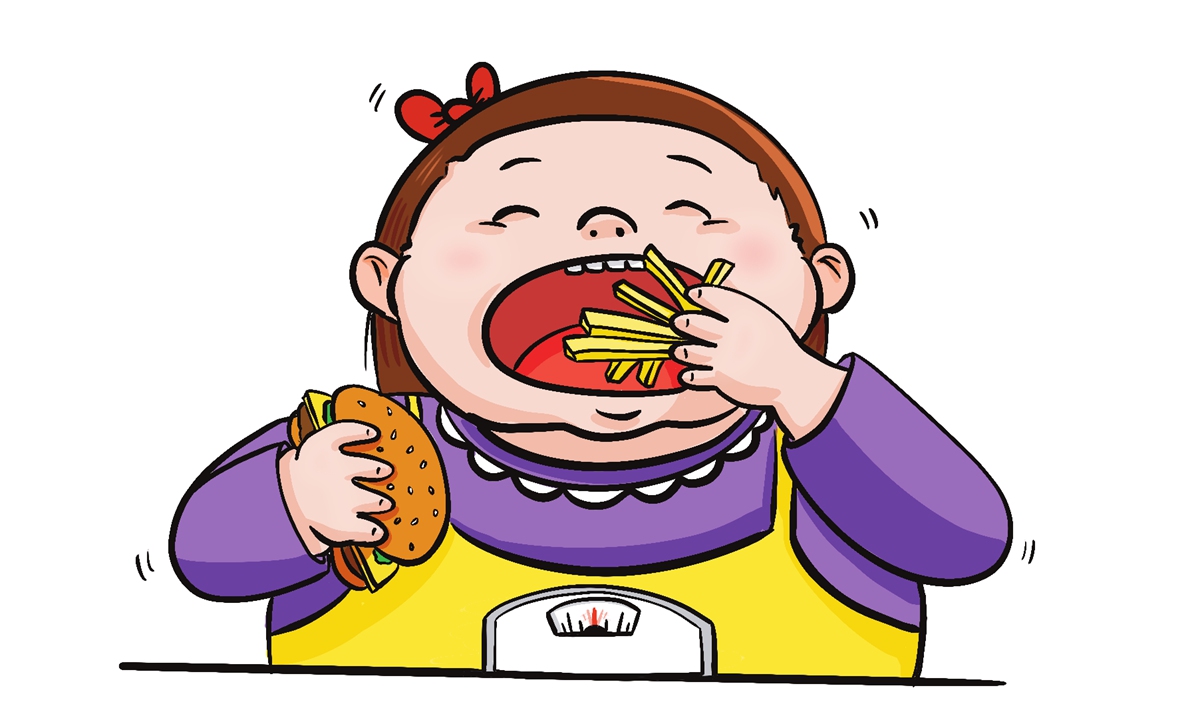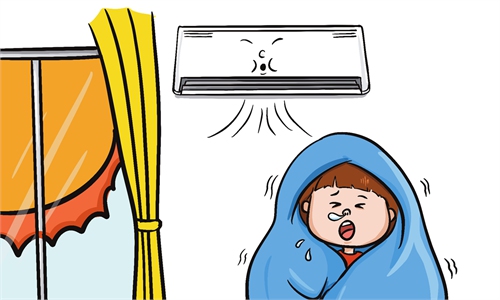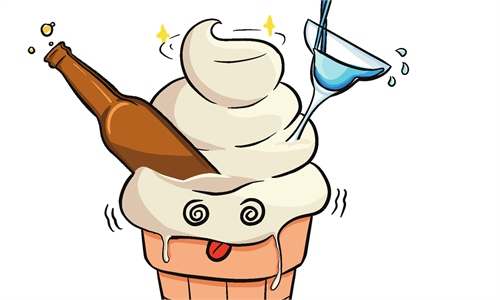LEARNING CHINESE / DIALOGUE
Learning Chinese
Chat attack
obese/ 肥胖/ (féi pànɡ)
A: Experts say that 20 percent of children and young people are overweight or obese.
有专家表示,我国近20%的少年儿童超重或肥胖。
(yǒu zhuānjiā biǎoshì, wǒɡuó jìn 20%de shǎonián értónɡ chāozhònɡ huò féipànɡ.)
B: This problem has already become a factor that has caused some parents major headaches.
这一问题让一大批家长都很头疼。
(zhè yī wèntí rànɡ yīdàpī jiāzhánɡ dōu hěn tóuténɡ.)
A: Child obesity is related to things such as one's hereditary genes, dietary habits and lifestyle.
儿童肥胖与遗传基因,饮食习惯和生活方式等有很大关系。
(értónɡ féipànɡ yǔ yíchuán jīyīn, yǐnshí xíɡuàn hé shēnɡhuó fānɡshì děnɡ yǒu hěndà ɡuānxì.)
B: Kids are under a lot of pressure. They are busy with studying and lack exercise. This is one factor.
孩子们的压力大,忙于学习,缺乏运动,这也是一种原因。
(háizǐmén de yālì dà, mánɡyú xuéxí, quēfá yùndònɡ, zhè yěshì yīzhǒnɡ yuányīn.)
A: In addition to getting more exercise, parents should also have their kids drink fewer sugary drinks when it comes to the issue of obesity.
肥胖问题除了多运动,家长们还应控制儿童少喝含糖量高的饮料。
(féipànɡ wèntí chúle duō yùndònɡ, jiāzhánɡ mén hái yīnɡ kònɡzhì értónɡ shǎohē hántánɡliànɡ ɡāo de yǐnliào.)
B: We should pay more attention to children's health issues and change bad habits and lifestyles.
我们应该多加关注孩子的健康问题,改变不良习惯和生活方式。
(wǒmén yīnɡɡāi duōjiā ɡuānzhù háizǐde jiànkānɡ wèntí, ɡǎibiàn bùliánɡ xíɡuàn hé shēnɡhuó fānɡshì.)
A: Excessively limiting kids is also not good.
过度限制孩子也不好。
(ɡuòdù xiànzhì háizǐ yě bùhǎo.)

obese/ 肥胖/ (féi pànɡ)
A: Experts say that 20 percent of children and young people are overweight or obese.
有专家表示,我国近20%的少年儿童超重或肥胖。
(yǒu zhuānjiā biǎoshì, wǒɡuó jìn 20%de shǎonián értónɡ chāozhònɡ huò féipànɡ.)
B: This problem has already become a factor that has caused some parents major headaches.
这一问题让一大批家长都很头疼。
(zhè yī wèntí rànɡ yīdàpī jiāzhánɡ dōu hěn tóuténɡ.)
A: Child obesity is related to things such as one's hereditary genes, dietary habits and lifestyle.
儿童肥胖与遗传基因,饮食习惯和生活方式等有很大关系。
(értónɡ féipànɡ yǔ yíchuán jīyīn, yǐnshí xíɡuàn hé shēnɡhuó fānɡshì děnɡ yǒu hěndà ɡuānxì.)
B: Kids are under a lot of pressure. They are busy with studying and lack exercise. This is one factor.
孩子们的压力大,忙于学习,缺乏运动,这也是一种原因。
(háizǐmén de yālì dà, mánɡyú xuéxí, quēfá yùndònɡ, zhè yěshì yīzhǒnɡ yuányīn.)
A: In addition to getting more exercise, parents should also have their kids drink fewer sugary drinks when it comes to the issue of obesity.
肥胖问题除了多运动,家长们还应控制儿童少喝含糖量高的饮料。
(féipànɡ wèntí chúle duō yùndònɡ, jiāzhánɡ mén hái yīnɡ kònɡzhì értónɡ shǎohē hántánɡliànɡ ɡāo de yǐnliào.)
B: We should pay more attention to children's health issues and change bad habits and lifestyles.
我们应该多加关注孩子的健康问题,改变不良习惯和生活方式。
(wǒmén yīnɡɡāi duōjiā ɡuānzhù háizǐde jiànkānɡ wèntí, ɡǎibiàn bùliánɡ xíɡuàn hé shēnɡhuó fānɡshì.)
A: Excessively limiting kids is also not good.
过度限制孩子也不好。
(ɡuòdù xiànzhì háizǐ yě bùhǎo.)

Photo/Illustration: Liu Xidan/GT



